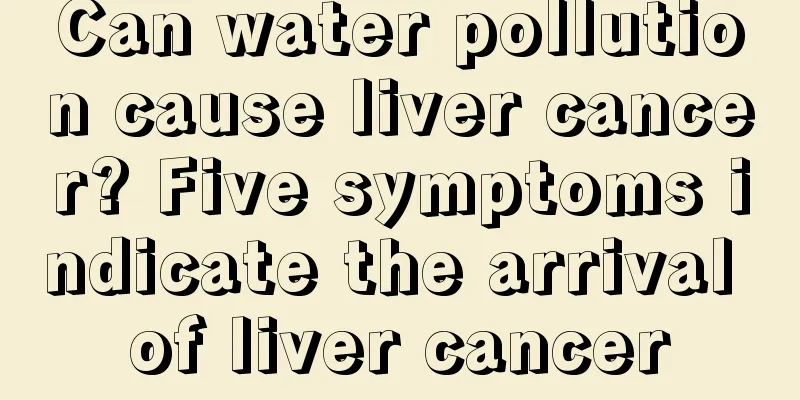What are the factors of prostate cancer

|
The causes of prostate cancer are very complex. Currently known high-risk factors include age, race, genetics, diet, vasectomy, smoking, obesity, and other prostate lesions. Age: Elderly people are more likely to get sick Prostate cancer mainly occurs in elderly men. A group in the United States reported that about 30% of autopsies of men over 50 years old had prostate cancer, and the rate reached 50% in those over 80 years old. Genetics: Prostate cancer runs in families Men with a family history of prostate cancer have a significantly increased risk of developing prostate cancer. Dietary factors: High-calorie fatty foods are dangerous Among the risk factors, the most preventive ones are the dietary factors that induce prostate cancer. Studies have shown that excessive intake of fatty foods will increase the incidence of prostate cancer, while a diet rich in soy protein will reduce its incidence. The incidence of prostate cancer among Chinese and Japanese immigrants in San Francisco, USA is 3-7 times that of native-born people. One of the important factors is that they eat more fatty foods than native-born people. Excessive intake of fat will lead to increased cholesterol synthesis, which will further lead to an increase in androgens synthesized based on cholesterol. An increase in the ratio of testosterone in androgens is an important factor in the development of prostate cancer. It is now believed that the ideal ratio of fat in the total calories of the diet is 10%-20%. The lower incidence of prostate cancer in Asian countries is also related to the high intake of soy protein foods. This is because such foods are rich in phytoestrogens, whose chemical structure is similar to estrogen in the human body and have a certain inhibitory effect on androgens. Of course, there are far more dietary factors that induce prostate cancer. For example, catechins in green tea or vitamin E and selenium in fresh vegetables and fruits can inhibit the occurrence of prostate cancer. There are five dietary measures to prevent prostate cancer: first, the proportion of fat in the total calories of food should be less than 20%; second, 20-40 grams of soy products should be consumed daily; third, 200 micrograms of selenium per day; fourth, 400-800 international units of vitamin E per day; and fifth, drinking more green tea. Items 3 and 4 can also be replaced by eating more fresh vegetables and fruits. Others: Obesity, smoking, and surgery can increase the incidence of prostate cancer Although a few studies suggest that people who undergo vasectomy have an increased risk of prostate cancer, most studies disagree. Other studies have shown that benign prostatic hyperplasia, excessive obesity, lack of exercise, smoking, radiation, or sexually transmitted viruses may increase the incidence of prostate cancer. Older men with relevant risk factors need to be vigilant, give up bad eating and living habits, and moderate exercise may be meaningful for the prevention of prostate cancer. Prostate cancer http://www..com.cn/zhongliu/qlx/ |
<<: What are the early symptoms of skin cancer?
>>: What are the early signs of colon cancer?
Recommend
Stye in the eyes and its treatment
We have seen many people with stye in their eyes....
The dangers of air fryers
An air fryer is a pan that can be used to fry foo...
How to treat thick white tongue coating and bad breath, why does this phenomenon occur?
Thick white tongue coating and bad breath are ver...
Can the gaps between teeth be filled?
As we all know, there are gaps between people'...
What are some teas that nourish the stomach and strengthen the spleen?
There are many ways to nourish the stomach and st...
Does spinning bike reduce calves size?
Having slender legs is what women desire most, so...
How to take a bath with roses
To take a rose bath, boil the roses in water for ...
Is pancreatic cancer treatment expensive?
Pancreatic cancer is a highly malignant tumor. If...
Potassium chloride tablets usage, dosage and precautions
Potassium chloride tablets are actually a common ...
Fat filling uneven
Fat grafting is a new cosmetic surgery technique ...
Is melasma easy to treat? Beware of misunderstandings in treating melasma!
I don’t know if you have noticed that many people...
What are the symptoms of advanced brain metastasis of lung cancer? 5 symptoms indicate that brain metastasis of lung cancer has reached an advanced stage
The brain is one of the common metastatic sites o...
What to do if there are black stains on teeth?
Healthy Teeth We can eat healthily, but we often ...
Do breasts get bigger the more you massage them?
In order to achieve the goal of breast enhancemen...
What are the sequelae of herpes zoster ophthalmicus?
Shingles is a very common skin disease, which has...









